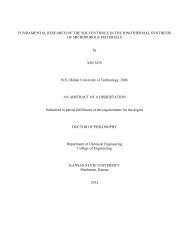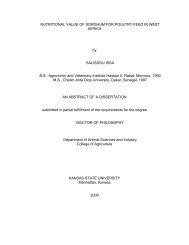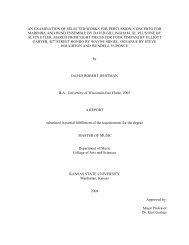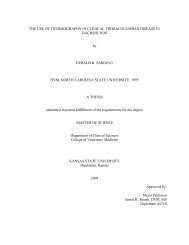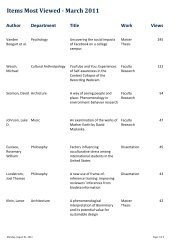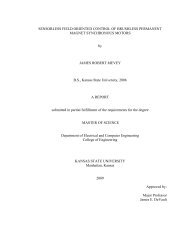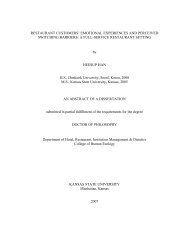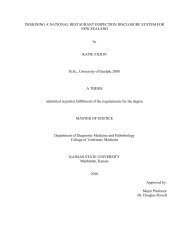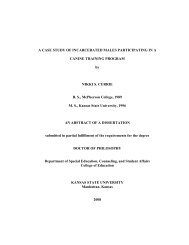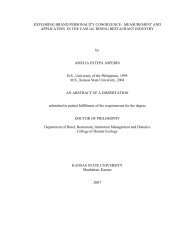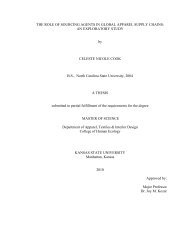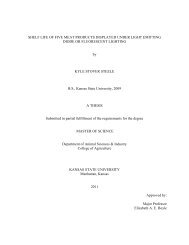SELFISH INTENTIONS - K-REx - Kansas State University
SELFISH INTENTIONS - K-REx - Kansas State University
SELFISH INTENTIONS - K-REx - Kansas State University
Create successful ePaper yourself
Turn your PDF publications into a flip-book with our unique Google optimized e-Paper software.
Many of the features outlined in the territorial statutes were copied when the state was accepted<br />
into the Union, included the court structure.<br />
The 1855 Statutes of the Territory of <strong>Kansas</strong> outlined the grounds for divorce. The first<br />
set of grounds related to conditions which either were present or should have been present at the<br />
time of the marriage included impotency and the existence of a legal wife or husband from a<br />
previous marriage. The next set of grounds were actions taken by one party which occurred<br />
during the marriage. One spouse had grounds for divorce if the other spouse committed<br />
adultery, deserted the other spouse without reasonable cause for a period of two years, was<br />
convicted of a felony or other infamous crime, or if they were guilty of cruel and barbarous<br />
treatment which endangered the life of the other. The final two grounds for divorce outlined in<br />
the territorial statutes stated that if one party offered such indignities to the other person as shall<br />
tender his or her condition as intolerable, or the husband shall be guilty of the conduct of a<br />
vagrant the other spouse had grounds for divorce. 75 If any of these previously noted grounds<br />
were present in the marriage, the innocent and injured party could obtain a divorce from the<br />
bonds of matrimony. The territorial statutes also noted that the divorce would not affect the<br />
legitimacy of the children of the marriage.<br />
After a person had grounds for divorce, the territorial statutes also delineated the<br />
procedures to petition for divorce. The patron could petition in any court having chancery or<br />
equity jurisdiction. In the <strong>Kansas</strong> Territory, they would therefore petition in the district court. In<br />
a divorce proceeding, the defendant was given the opportunity to address the accusations by the<br />
plaintiff in the petition. Then the plaintiff was asked to swear in an affidavit stating that to the<br />
best of their knowledge the said complaint was not made out of fear or restraint for the purpose<br />
75 The Statutes of the Territory of <strong>Kansas</strong>, Chapter 62, Section 1.<br />
29



